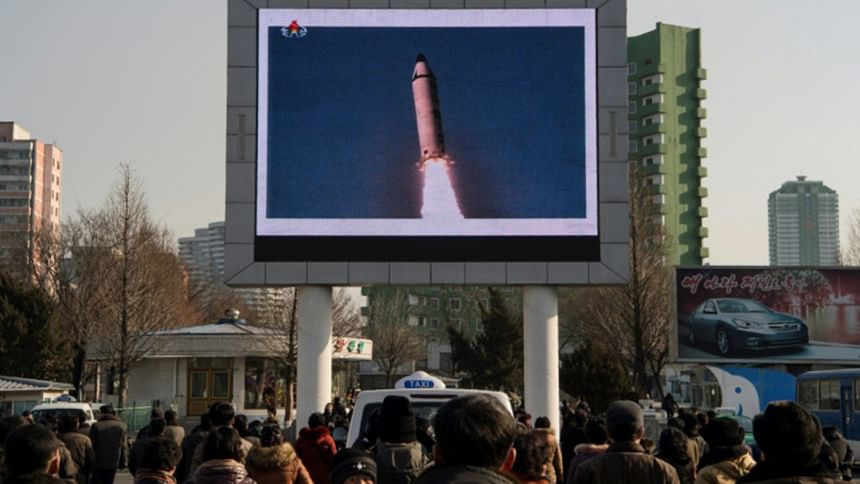N Korea accuses US of imposing an 'economic blockade'

North Korea's UN ambassador accused the United States on Tuesday of imposing "an economic blockade" on his country and deploying nuclear assets on the Korean peninsula aimed at toppling leader Kim Jong Un.
Ja Song Nam said the US push for countries to implement what he called "illegal and unjustifiable" UN sanctions on North Korea is part of America's "frantic attempt to completely block our peaceful economy for people's everyday lives and humanitarian cooperation."
"The US is clinging to unprecedented nuclear threats and blackmail, economic sanctions and blockade to deny our rights to existence and development, but they only result in our sharper vigilance and greater courage," he told the General Assembly committee that deals with economic and financial issues.
The UN Security Council has imposed its toughest sanctions ever on North Korea in response to its continuing nuclear weapons and ballistic missile tests, with the aim of pressuring Kim's government into returning to negotiations on denuclearizing the Korean peninsula.
The measures include a ban on countries importing North Korean coal, iron ore and textiles and new limits on its crucial oil and petroleum product imports. But the economic pressure has had no visible impact on Kim's government, which appears to be accelerating toward what it says is its goal - putting the entire United States within range of its nuclear weapons.
A week ago, North Korean Foreign Minister Ri Yong Ho told reporters that U.S. President Donald Trump had "declared the war on our country" by tweeting that North Korea's leadership "won't be around much longer." Hours later, the White House pushed back, saying: "We have not declared war on North Korea."
The Trump administration, referring to the tweet, stressed that the US is not seeking to overthrow North Korea's government. US Cabinet officials, particularly Secretary of State Rex Tillerson, have insisted that the US-led campaign of diplomatic and economic pressure on North Korea is focused on eliminating its nuclear weapons program, not its totalitarian government.
North Korea's ambassador told the assembly committee that "our people will continue to uphold the line of simultaneous development of the state nuclear force and the economy."
Ja said the country is committed to implementing UN goals to end poverty and preserve the environment by 2030 and said Trump's announced intention to withdraw the U.S. from the 2015 Paris climate change agreement "illustrates the negative stand of the U.S. towards the sustainable development goals."
To achieve these goals, Ja said, "we should immediately obliterate the high-handed measures of the US, including the sanctions imposed on the developing countries."
And clearly aiming at the United States and other economic powers, he said the "monopolistic position" of countries that control the monetary and trade system should be destroyed at the same time.

 For all latest news, follow The Daily Star's Google News channel.
For all latest news, follow The Daily Star's Google News channel. 



Comments